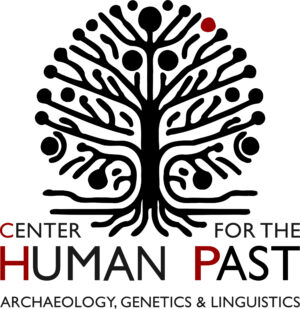Talks of the Past (ToP)
The Center for the Human Past (CHP) open seminar series, Talks of the Past (also known as ToP seminars), takes place on the first Wednesday of each month and is followed by a discussion and an After-Seminar gathering with a “fika” (coffee break).
The event is open to anyone interested in interdisciplinary research in the fields of palaeogenetics, archaeology, and archaeolinguistics.
You can access the ToP presentations here. We also include references to the most relevant scientific papers. Please provide the correct references if you use any information found here.
2025
Discussing mobility and cultural change in the context of Aegean Neolithization
7 May 2025
Speaker: Mehmet Somel, Department of Biological Sciences: Biology/Molecular Biology & Genetics, METU, Turkey, and Human Past SCAS Senior Fellow 2024-25

Related reading:
Koptekin, D., Aydoğan, A., Karamurat, C., Altınışık, N. E., Vural, K. B., Kazancı, D. D., … & Somel, M. (2024). Out-of-Anatolia: cultural and genetic interactions during the Neolithic expansion in the Aegean. bioRxiv, 2024-06. https://www.biorxiv.org/content/10.1101/2024.06.23.599747v1.full
Mehmet Somel presented some recent results on the first steps of the Neolithic expansion westward, “out-of-Anatolia”. For this study, his group generated 30 new paleogenomes from six West and Central Anatolia settlements dating to c.10,000-8,000 years ago. The researchers further compiled a digitalised material culture dataset comprising 58 cultural elements, from architecture and tools to burial types and pottery styles. The dataset revealed that the westward expansion of the Neolithic was much more diverse in its dynamics than usually assumed.
By 10,000 years ago, in West Anatolia, they found cultural adoption of Neolithic elements, but without genetic evidence for mobility. By 8,500 years ago, they found mobility from Neolithic core areas in the east, where the incomers mixed with local foraging groups in West Anatolia. Later, the descendants of this genetically mixed population expanded into Europe to establish the Neolithic there.
Mehmet’s group has also performed a quantitative comparison of material culture similarities among settlements with their genetic and spatial proximities. This showed that genetic history had no explanatory impact on material culture similarities after controlling for spatial similarity. This supports the notion that material culture similarity patterns are shaped by background mobility rather than migration processes.
Uralic spread, Seima-Turbino & flower pots
2 Apr 2025
Speaker: Outi Vesakoski, Human Diversity Consortium, University of Turku, Finland
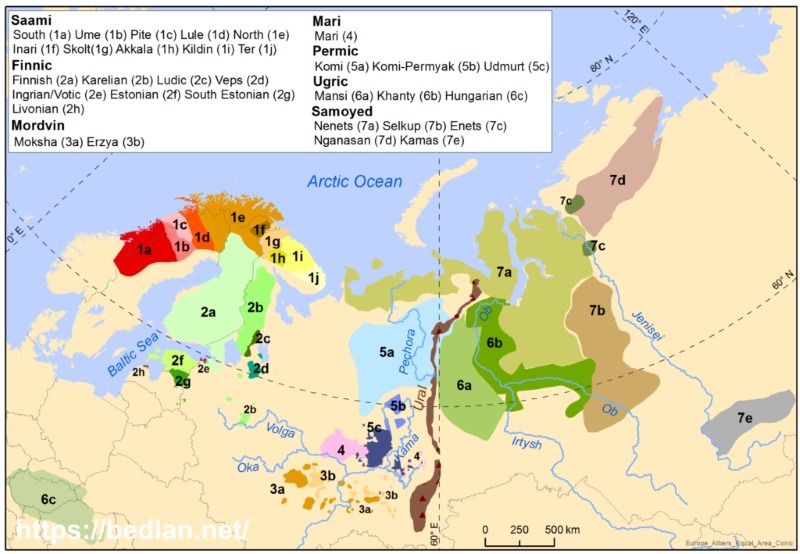
Related reading
Vesakoski, O., Salmela, E. & Piezonka, H. (2025). Uralic Archaeolinguistics. In M. Robbeets & M. Hudson (eds) Oxford Handbook of Archaeology and Language. (Forthcoming)
The intimate relationship between humans and crop plants means that traces of human cultural practices become embedded in the crop genome. Aspects of past cultures not documented in written records can consequently be studied with genetic analyses of archaeological crop remains. Such analyses, however, come with their own particular set of challenges, not the least in finding suitable material to study. Some of the best preserved prehistoric crop remains in the world can be found in the mountains of Gran Canaria, and Jenny Hagenblad has used these to study the effects of societal upheavals.
Five hundred years ago, with the Hispanic conquest of the archipelago, the Canary Islands went through a rapid transition from neolithic isolation to a globalisation hub, with dramatic consequences for the insular society. Jenny will give examples of how the genetic analysis of crops and crop remains has illuminated both the islands’ early prehistory, the agrarian consequences of the Hispanic conquest, and the influence of Canarian agriculture reaching well beyond the archipelago.
Prehistoric plant DNA and the agricultural history of the Canary Islands
5 Mar 2025
Speaker: Jenny Hagenblad, Linköping University
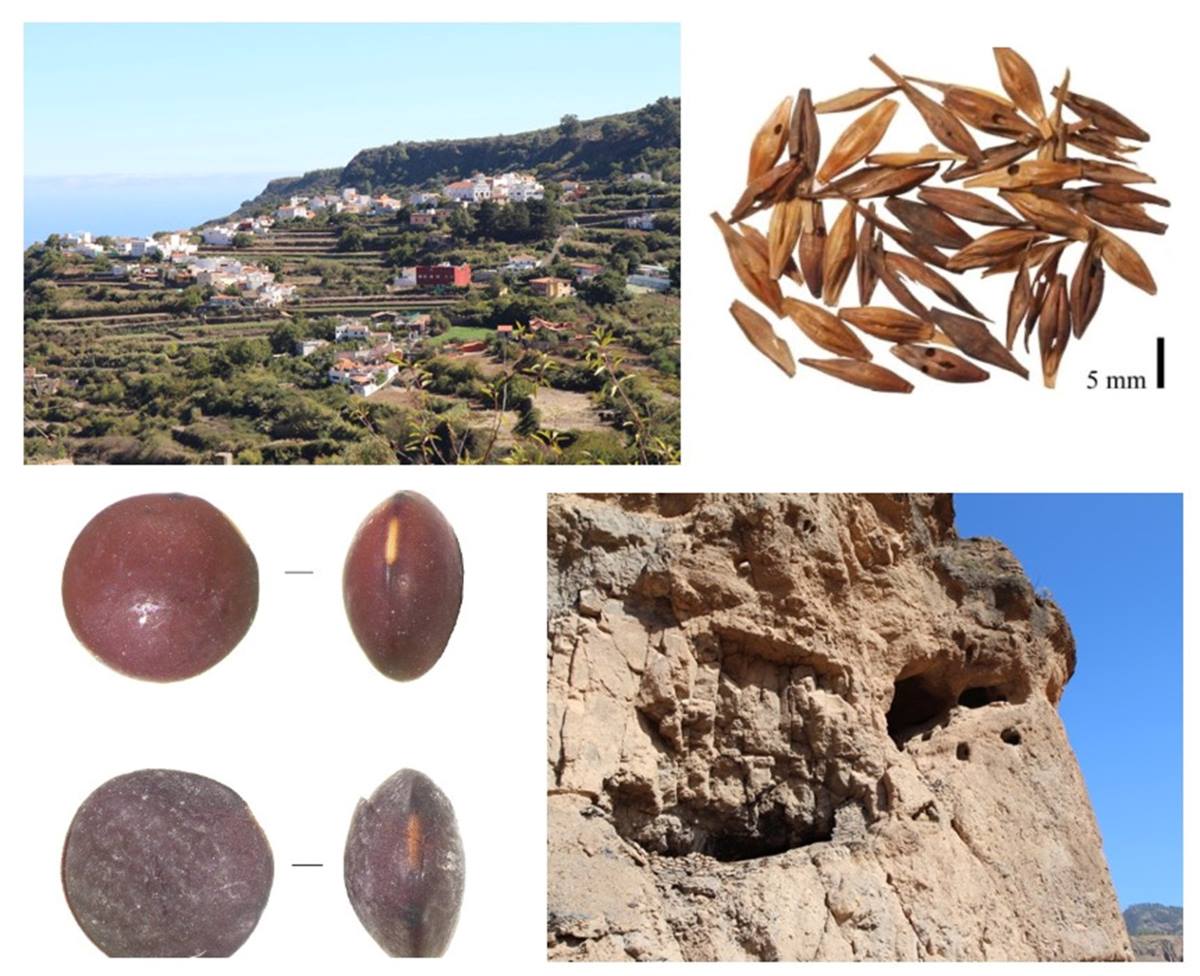
The intimate relationship between humans and crop plants means that traces of human cultural practices become embedded in the crop genome. Aspects of past cultures not documented in written records can consequently be studied with genetic analyses of archaeological crop remains. Such analyses, however, come with their own particular set of challenges, not the least in finding suitable material to study. Some of the best preserved prehistoric crop remains in the world can be found in the mountains of Gran Canaria, and Jenny Hagenblad has used these to study the effects of societal upheavals.
Five hundred years ago, with the Hispanic conquest of the archipelago, the Canary Islands went through a rapid transition from neolithic isolation to a globalization hub, with dramatic consequences for the insular society. Jenny will give examples of how the genetic analysis of crops and crop remains has illuminated both the islands’ early prehistory, the agrarian consequences of the Hispanic conquest, and the influence of Canarian agriculture reaching well beyond the archipelago.
6000 years of ancient foodways in NE Baltics: biomolecular methods and social implications
5 Feb 2025
Speaker: Ester Oras, University of Tartu, Estonia
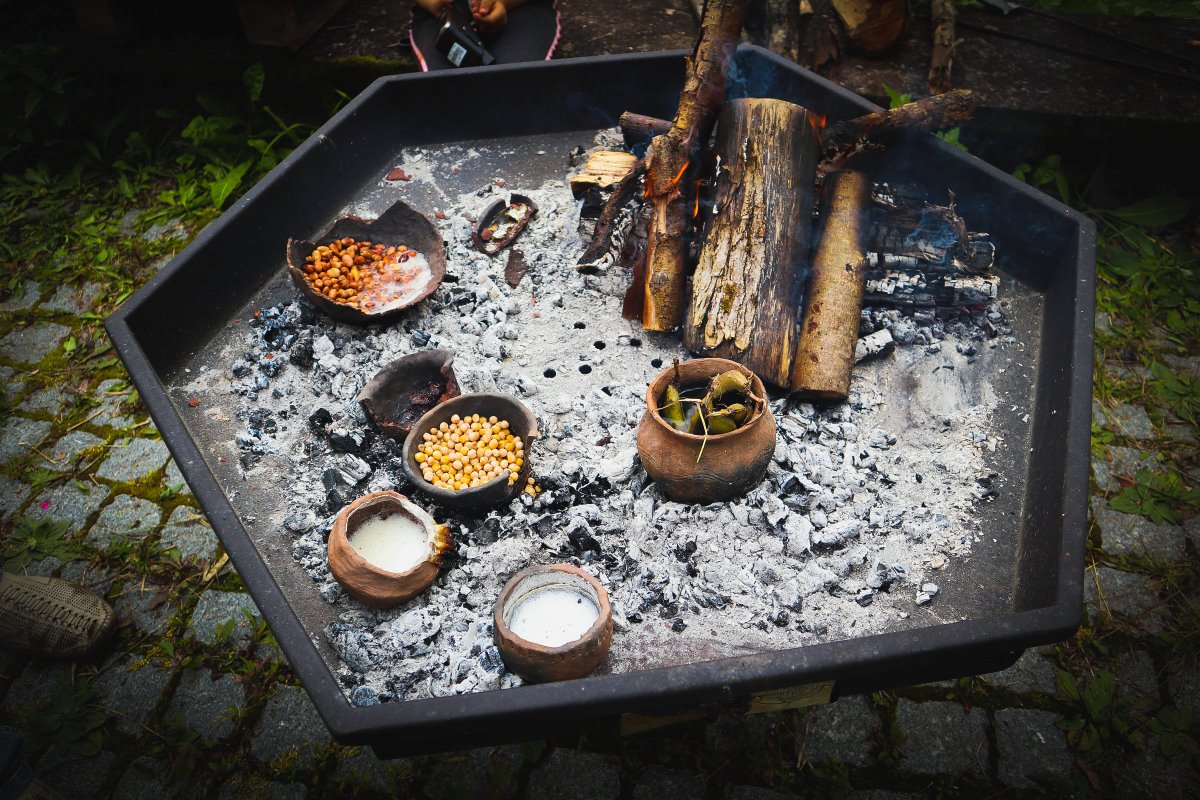
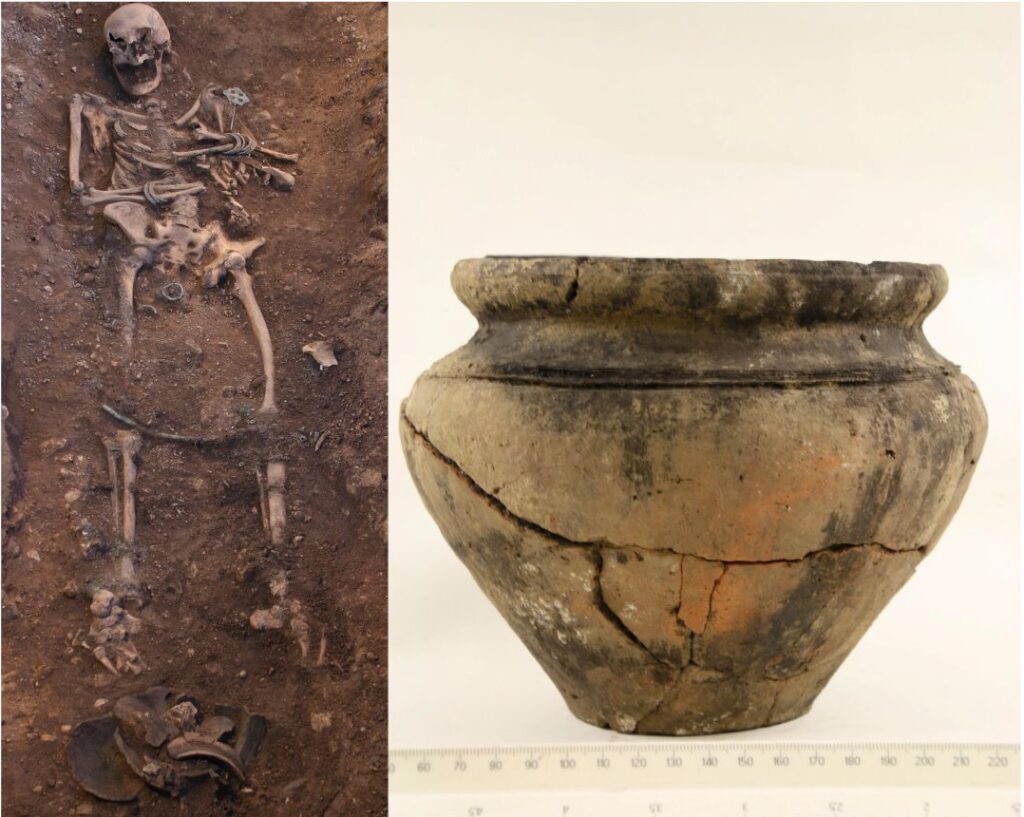
Photographs: Ester Oras and Tõnno Jonuks.
Biomolecular archaeology has taken a leading role in ancient dietary reconstructions. The molecular- and isotopic-level information gained from ancient skeletal remains and pottery can reveal a more cohesive but also nuanced picture of past foodways, thanks to its higher-resolution analytical capacities in terms of both obtained information and context-specific interpretations.
This talk will exemplify the benefits and possibilities of multi-proxy and -analyte biomolecular approaches, particularly put into use for creating long-term overviews of major dietary changes. I will use case studies from Estonia and build on the results of recently finished research project creating a 6000-years of regional foodways in NE Baltics.
Whilst doing so I will explain the main principles and analytical approaches of biomolecular dietary analysis from different archaeological materials, but also reflect on the importance of thorough archaeological and socio-cultural contextualisation when it comes to interpreting biomolecular results.
2024
Talks of the Past in 2024
The Language Families of the World: Current State and Future Perspectives
4 Dec 2024
Speaker: Harald Hammarström, Uppsala University, Sweden
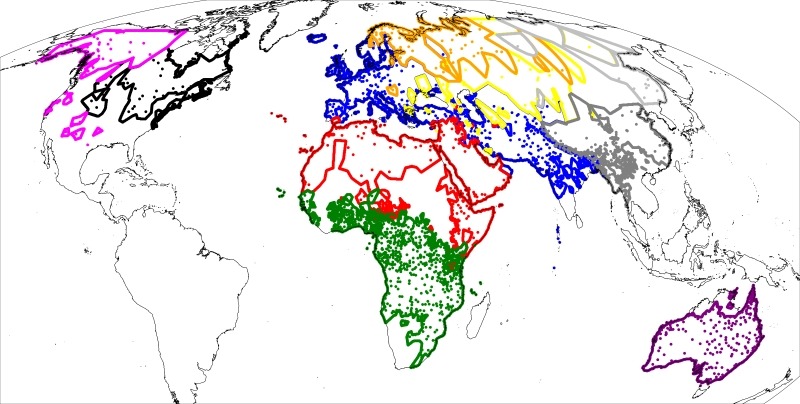
The approximately 7,000 languages of the world is currently divided into no less than 422 lineages (= families + isolates) by the orthodox evidential criteria of Glottolog. Should we believe this number? To what extent is it subjective, consistent in meta-properties, and dependent on the amount of research and documentation? The time-depth of the families so far established does not reach more than 10,000 years back in time, whereas human language arguably goes back at least 300,000 years (probably further).
The inherent rate of linguistic change puts a limit on how deep linguistic data alone can probe, but are there combinations using evidence from other disciplines and general geospatial considerations that may take us further?
References
- Arnold, R. and Bauer, L. (2006). A note regarding ’on the power-law distribution of language family sizes’. Journal of Linguistics, 42:373–376.
- Athreya, K. B. and Ney, P. E. (1972). Branching Processes. Berlin: Springer.
- Barbieri, C., Blasi, D. E., Arango-Isaza, E., Sotiropoulos, A. G., Hammarström, H., Wichmann, S., Greenhill, S. J., Gray, R. D., Forkel, R., Bickel, B., and Shimizu, K. K. (2022). A global analysis of matches and mismatches between human genetic and linguistic histories. Proceedings of the National Academy of Sciences, 119(47(e2122084119)):1–9, S1–S42.
- Campbell, L. (1999). Historical Linguistics: An Introduction. Cambridge, Massachusetts: MIT Press.
- Campbell, L. (2004). Historical Linguistics: An Introduction. Edinburgh: Edinburgh University Press, 2 edition.
- Campbell, L. (2012). Classification of the indigenous languages of South America. In Campbell, L. and Grondona, V., editors, The Indigenous Languages of south america: A Comprehensive Guide, volume 2 of The World of Linguistics, pages 59–166. Berlin: Mouton.
- Campbell, L. (2020). Historical Linguistics: An Introduction. Edinburgh: Edinburgh University Press, 4 edition.
- Chu, J. and Adami, C. (1999). A simple explanation for taxon abundance patterns. Proceedings of the National Academy of Sciences, 96:15017–15019.
- Eberhard, D. M., Simons, G. F., and Fennig, C. D. (2024). Ethnologue: Languages of the World. Dallas: SIL International, 27 edition.
- Goddard, I. (1996). The classification of the native languages of north america. In Goddard, I., editor, Languages, volume 17 of Handbook of North American Indians, pages 290–324. Washinton, D.C.: Smithsonian Institution, Washinton, D.C.
- Hammarström, H., Forkel, R., Haspelmath, M., and Bank, S. (2024). Glottolog 5.1. Leipzig: Max Planck Institute for Evolutionary Anthropology. Available at http://glottolog.org. Accessed on 2024-11-15.
- Hublin, J.-J., Ben-Ncer, A., Bailey, S. E., Freidline, S. E., Neubauer, S., Skinner, M. M., Bergmann, I., Cabec, A. L., Benazzi, S., Harvati, K., and Gunz, P. (2017). New fossils from jebel irhoud, morocco and the pan-african origin of homo sapiens. Nature, 546:289–292.
- Powell, J. W. (1891). Indian linguistic families. In Seventh Annual Report of the Bureau of Ethnology to the Secretary of the Smithsonian Institution, 1885-1886, pages 1–142. Washington: Government Printing Office, Washington.
- Ruhlen, M. (1991). A guide to the world’s languages. Vol. 1, Classification with a postscript on recent developments. Stanford: Stanford University Press, Stanford.
- Watson, H. W. and Galton, F. (1875). On the probability of extinction of families. Journal of the Anthropological Institute of Great Britain and Ireland, 4:138–144.
- Wichmann, S. (2005). On the power-law distribution of language family sizes. Journal of Linguistics, 41:117–131.
- Čestmír Loukotka (1968). Classification of the South American Indian Languages, volume 7 of Reference Series. Los Angeles: Latin American Center, University of California.
New linguistic and archaeogenomic perspectives on the origin and spread of the Germanic languages
6 Nov 2024
Speaker: Guus Kroonen, Leiden University, the Netherlands
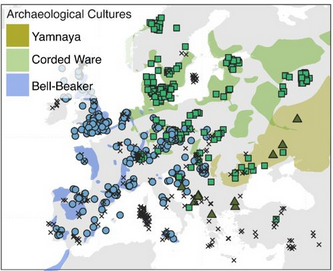
Related reading
McColl et al. 2024 (prepress). Steppe Ancestry in western Eurasia and the spread of the Germanic Languages
The Germanic languages, including English, German and the Nordic languages, are widely assumed to have dispersed from Southern Scandinavia after the Pre-Roman Iron Age. However, the demographic processes behind their diversification are not yet fully understood. In addition, it is currently not known when and from where the Germanic language group arrived in Scandinavia.
To understand the prehistoric and historical distributions of the Germanic languages, Guus Kroonen contributed to a paleogenomic study analyzing 710 ancient genomes and 3,940 published genomes from western Eurasia. Results indicate a Late Neolithic cross-Baltic maritime migration and significant genetic shifts during the Migration Period, impacting populations across northern Europe.
In his talk, Kroonen discussed the challenges of interpreting archaeogenomic evidence at clarifying language origins and dispersals.
Toward Professional Ethics of Ancestral Human Remains Research: from Tissue to Biomolecules
2 Oct 2024
Speaker: Rita Peyroteo Stjerna, Uppsala University, Sweden
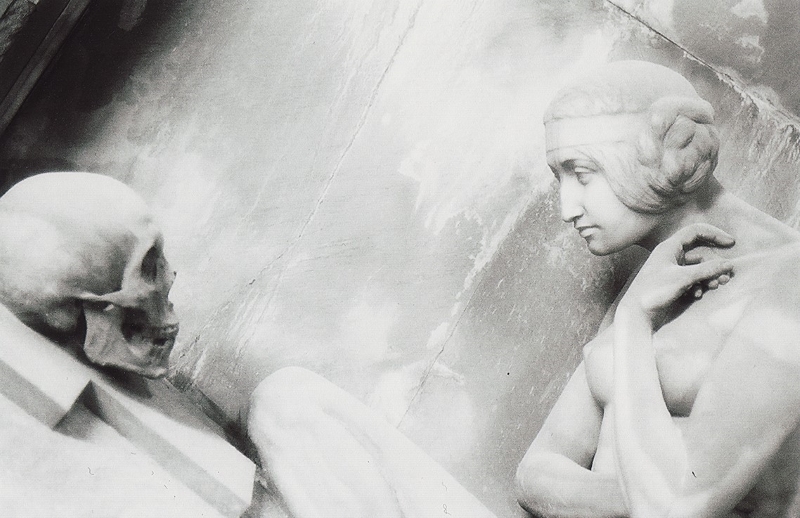
Related reading
Peyroteo-Stjerna R, Nilsson Stutz L, Mickleburgh HL, Cardoso JL. Mummification in the Mesolithic: New Approaches to Old Photo Documentation Reveal Previously Unknown Mortuary Practices in the Sado Valley, Portugal. European Journal of Archaeology. 2022;25(3):309-330. doi:10.1017/eaa.2022.3
Ancient human remains are highly prized research subjects because of the wealth of information they can provide about past lives, which otherwise would be difficult to uncover. In recent years, the astonishing development of biomolecular techniques such as residue and stable isotope analyses, proteomics, and the breakthrough of the next generation sequencing of ancient DNA, propelled Biomolecular Archaeology to a leading field of research, crossing major disciplinary boundaries between the Humanities and the Natural Sciences.
While the study of human remains is just one portion of the vast tool kit of biomolecular research, its rapid development aggravated a number of already existing challenges and underlined the ethical entanglements of research using human remains in a highly unregulated field.
In this seminar, I will focus on the biomolecular dimensions of human remains in research, how researchers approach this legacy, and how it differs from handling hard or soft tissue. By focusing on this aspect, I aim to highlight that biomolecular archaeologists not only have unique professional responsibilities, but also are exceptionally positioned to lead the debate forward.
This study is part of a larger research project – Ethical Entanglements: The Care for Human Remains in Museums and Research, which seeks to strengthen the competence and awareness, among museum professionals and researchers of the complex ethical dimensions of research and curation of human remains.
Research Project (2024-2027) funded by the Swedish Research Council (VR): “Holding on to the Dead. Investigating Mummification in European Prehistory” (link: https://www.vr.se/english/swecris.html#/project/2023-01175_VR)
The genetic legacy of the expansion of Bantu-speaking peoples in Africa
4 Sept 2024
Speaker: Carina Schlebusch, Uppsala Univesity, Sweden
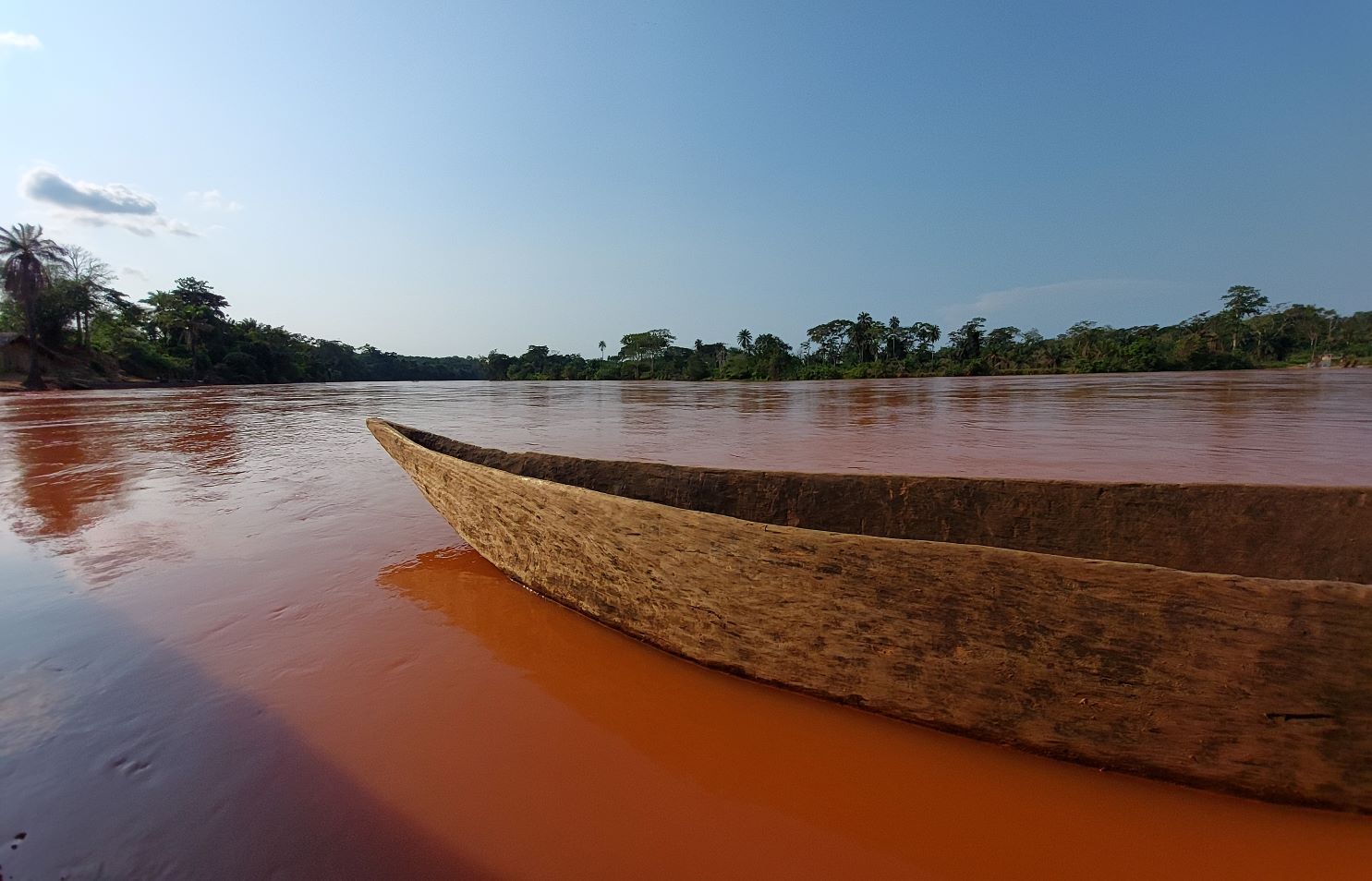
Related reading
Fortes-Lima, C.A., Burgarella, C., Hammarén, R. et al. The genetic legacy of the expansion of Bantu-speaking peoples in Africa. Nature 625, 540–547 (2024). https://doi.org/10.1038/s41586-023-06770-6
Carina M. Schlebusch et al., Southern African ancient genomes estimate modern human divergence to 350,000 to 260,000 years ago. Science 358, 652-655 (2017). DOI: 10.1126/science.aao6266
Mário Vicente, Carina M Schlebusch, African population history: an Ancient DNA perspective, Current Opinion in Genetics & Development, Volume 62, 2020, Pages 8-15, ISSN 0959-437X, https://doi.org/10.1016/j.gde.2020.05.008.
The Bantu expansion, a defining event of Holocene Africa, profoundly transformed the continent’s linguistic, cultural, and biological landscape. This talk integrates genomic data with evidence from other disciplines to explore the migration of Bantu-speaking peoples, which began around 6,000 years ago in western Africa. By analyzing DNA from modern and ancient populations across Africa, we reveal how genetic diversity diminishes with distance from the origin, pinpointing key regions like Zambia and the Democratic Republic of Congo as interaction hubs. Our findings underscore the complex interactions between migrating Bantu communities and indigenous groups, offering fresh perspectives that bridge the natural sciences and humanities, with implications for understanding African history and human variation.
A short film on the Ghent University BantuFirst project’s fieldwork can be viewed here (YouTube)
